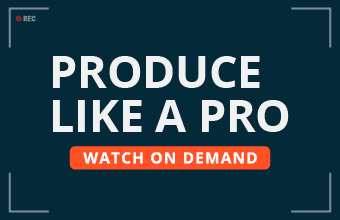Brands that market to Gen Zers (ages 5-25) had to have been elated over the results of a recent Hootsuite study that extolled the popularity of YouTube. That study revealed that 81 percent of Gen Zers between 15 and 25 use YouTube, and that doesn’t include the ones growing up behind them.
Hootsuite went on to report that YouTube has two billion logged-in monthly users, including 73 percent of all adults in the U.S., which Pew Research said is the most popular online platform in the country. So, besides its enormous popularity with Gen Z, YouTube is well-received with other generations. Among Gen Y, Hootsuite says YouTube is the second most-preferred platform for viewing videos on TV screens.
Why is this important?
Since the pandemic, YouTube’s popularity has risen even higher. Past articles reported on the growing popularity of video, and with more people home-bound, most major companies have started their own YouTube channels. They quickly recognized that video content featuring demonstrations, guides and tutorials are invaluable and well-received. Here are several ways for brands to optimize YouTube:
Keyword research
The use of certain words and key terms in the title and description of the video makes a huge difference. By researching and tracking SEO rankings of certain keywords, marketers and social media agencies can identify what’s popular and trending and use them. It helps to use free tools like YouTube Autocomplete that allow users to type in a keyword so see just what consumers search for.
Another free one is Google Keyword Planner which can research up to ten keywords to rank the brand’s video for. It’s a bit more complex than YouTube Autocomplete and can also be combined with it. Two other more-sophisticated fee-based apps are Keywordtool.io that permits searching for one keyword at a time and Kparser, which allows multiple searches.
Track and manage
Measurement and tracking are always important to marketers, and there are several tools available to assist. Like keyword research, there are several programs out there. YouTube Analytics comes with the channel and is free. It gives marketers a picture of their audience, viewership history, and what they prefer watching overall.
CMOs wishing more depth have a variety of programs to consider investing in. One is Social Blade which can not only provide information about the brand’s channel, but also the competitor. Another is the company quintly, which not only provides the usual statistics but also features a reporting module that can be shared with staff. TubeBuddy and vidIQ are two others that offer more complete packages allowing marketers to control the entire YouTube workflow.
Competitor research
Knowing what the competition’s social media strategy looks like, and its SEO ranking can yield valuable information like posting times and Facebook tactics. Unlike the strategies above, there are no free programs for researching competitors. Some of the leading brands to consider are Rival IQ, NoxInfluencer, Socialinsider, and Vaizle.
Summary
Based on the latest research, YouTube will be here for the long haul. With its growing popularity and increased dependence by consumers, brands have no alternative than to pay attention to this market and maximize their ROI. Employing these strategies and investing in the right tools will help a lot.








